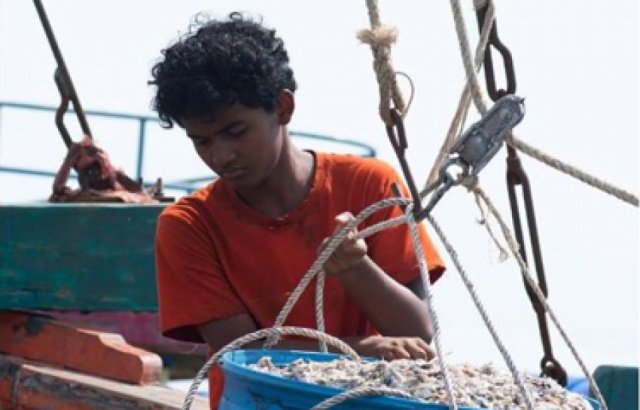
Buoyancy
Written & directed by Rodd Rathjen
Starring Sarm Heng, Thanawut Kasro & Mony Ros
In cinemas
In the seas off Thailand there is a thriving fishing industry. According to the makers of Buoyancy, its estimated worth is $6 billion per year.
It is also estimated that 200,000 slaves are used on the fishing trawlers. Writer and director Rodd Rathjen is hoping to ignite solidarity with the slaves.
This Australian-made film dramatises the experience of a 14-year-old Cambodian boy who is tricked into boarding such a vessel. The script is based on stories collected from escaped slaves.
Rathjen also spoke with ex-captains, government officials, and Cambodian families to gather different perspectives. The role of the ship’s captain is played by a man who worked on such a ship between the ages of 11 and 13.
For nearly all the actors, it is their first time performing in front of a camera. What they may lack in professionalism is compensated for by the filmmakers’ skill – this is good cinema as much as gripping social commentary.
In the opening sequence we are shown the cruel peasant existence that Chakra, played by Sarm Heng, longs to escape. As a younger son he will not inherit any land, his only prospect is to eventually work for his older brother.
So, he pays a smuggler to take him to Thailand with the prospect of a factory job. Instead, he finds himself at sea.
Torture and murder are the tools used by the boat commanders to keep the slaves toiling and there is enough here to shock. Thankfully the director avoids grossness, but the effects of the horror on the young protagonist are telling.
All dialogue is in Khmer or Thai, with subtitles, with silence often used as a technique. The sequences without a word being spoken have the unnerving effect of drawing the viewer into the situation.
There are also scenes of the trawler alone on a beautiful ocean, in which the water takes on the role of a massive prison.
Modern capitalism has constructed a world of combined and uneven development where people in far-flung corners of the world are drawn into its mechanism. But most of the world’s people are excluded from advanced capitalism, trapped instead in the primitive accumulation this film displays.
What happens to the hauls of fish endlessly trawled by the slaves? They are used for pet food -- which makes imperialism not just hideous but pathetic.